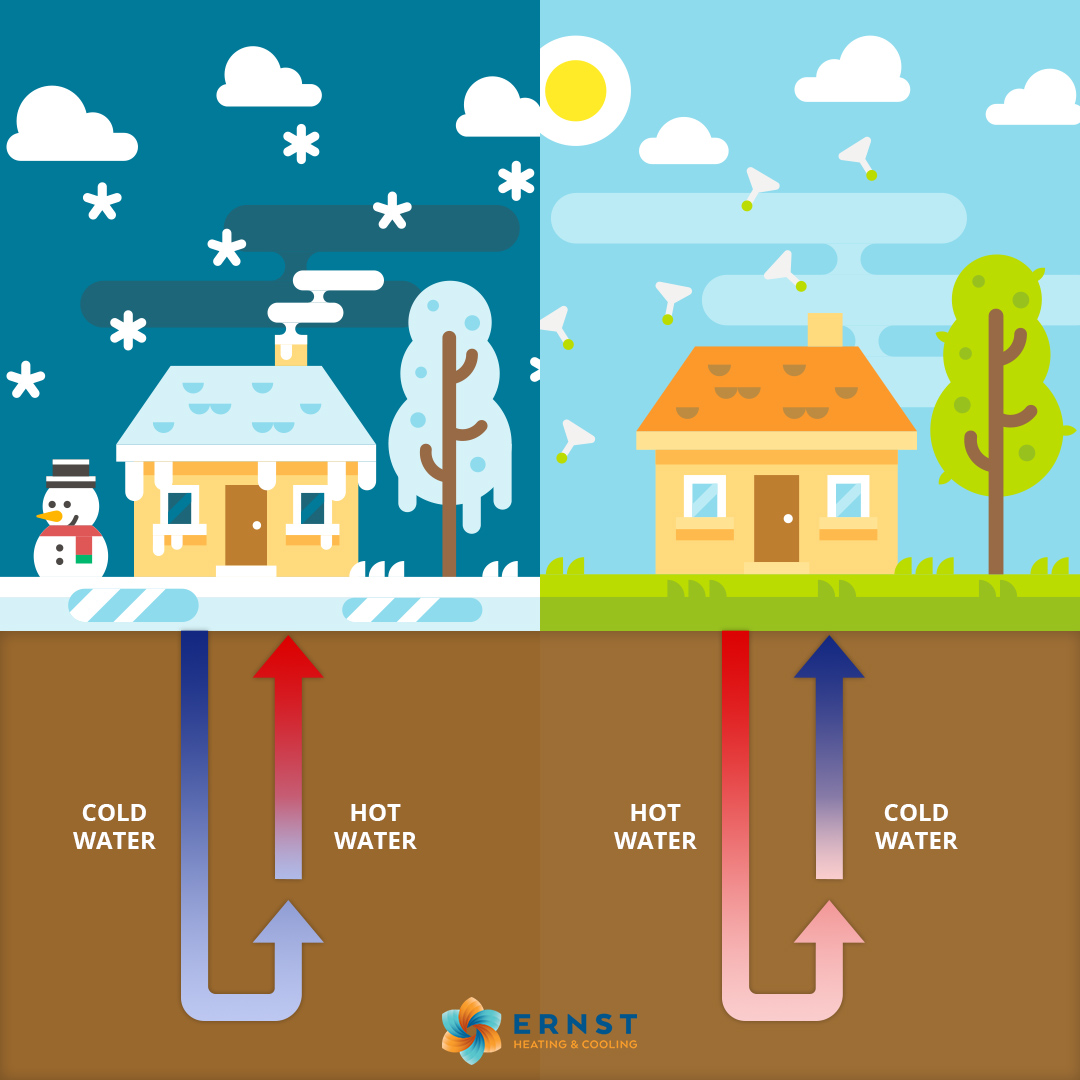The Power of Geothermal Heating and Cooling Systems: A Sustainable Home Solution
Published on: 2024-02-23
Welcome to our exploration of geothermal heating and cooling systems! In this blog post, we’ll delve into the benefits and technology behind geothermal systems, offering homeowners a sustainable and efficient solution for home comfort.
Understanding Geothermal Heating and Cooling
Geothermal heating and cooling systems harness the stable temperature of the earth below the surface to provide efficient heating, cooling, and hot water for residential properties. These systems utilize a heat pump to transfer heat between the earth and the home, providing consistent and comfortable indoor temperatures year-round.
Benefits of Geothermal Systems
-
Energy Efficiency: Geothermal systems are highly energy-efficient, utilizing renewable energy from the earth’s heat to provide heating and cooling with minimal electricity consumption.
-
Cost Savings: Although the upfront cost of installing a geothermal system may be higher than conventional HVAC systems, homeowners can recoup the investment through lower energy bills and reduced maintenance costs over time.
-
Environmental Sustainability: Geothermal systems produce zero emissions and reduce reliance on fossil fuels for home heating and cooling, making them an environmentally friendly alternative with a significantly lower carbon footprint.
-
Year-Round Comfort: Geothermal systems provide consistent and comfortable indoor temperatures year-round, with the ability to heat and cool homes efficiently in all seasons.
Geothermal System Technology
-
Ground Loop Design: Geothermal systems utilize underground loops, typically buried horizontally or vertically, to exchange heat with the earth. These loops circulate a fluid (usually water mixed with antifreeze) to absorb or release heat as needed.
-
Heat Pump Operation: A geothermal heat pump extracts heat from the earth during the heating season and transfers it to the home’s interior. In the cooling season, the process is reversed, with heat being transferred from the home to the earth for cooling.
-
Zoned Heating and Cooling: Geothermal systems can be designed with zoning capabilities, allowing homeowners to control temperatures in different areas of the home independently for personalized comfort and energy savings.
The Future of Geothermal Energy
-
Market Growth: As awareness of the benefits of geothermal heating and cooling systems grows, the market for residential geothermal systems is expected to expand, driven by advancements in technology and increasing demand for sustainable home solutions.
-
Innovation and Integration: Ongoing innovation and integration of geothermal technology with smart home systems and renewable energy sources like solar and wind will further enhance the efficiency and effectiveness of geothermal systems in residential applications.
Conclusion
Geothermal heating and cooling systems offer homeowners a sustainable, energy-efficient, and environmentally friendly solution for home comfort. With their numerous benefits and advancing technology, geothermal systems are poised to play a significant role in the transition to a greener and more sustainable future. Stay tuned for more informative posts on renewable energy solutions for homes!
